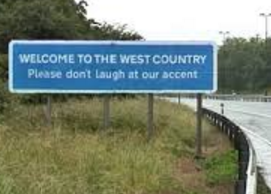
KNOWLEDGE BASE Language Localization For The UK
The information on this page was current at the time it was published. Regulations, trends, statistics, and other information are constantly changing. While we strive to update our Knowledge Base, we strongly suggest you use these pages as a general guide and be sure to verify any regulations, statistics, guidelines, or other information that are important to your efforts.
Brexit Update:
Since the UK officially left the European Union on January 31, 2020, the relationship between the two has evolved and continues to be shaped by the ongoing implementation of the withdrawal agreement.
Key Dates:
-
January 31, 2020: UK officially left the EU and entered a transition period that ended on December 31, 2020.
-
December 31, 2020: The transition period ended, and the UK fully exited the EU single market and customs union.
-
January 1, 2021: The UK-EU Trade and Cooperation Agreement came into effect, outlining the post-Brexit relationship between the two entities.
-
2023/2024 Current: The UK and EU are still navigating the ongoing implementation and potential revisions of their post-Brexit relationship.
It's crucial for businesses operating in either the UK or the EU to stay informed about the latest developments and adjust their operations accordingly.
Language Localization for the UK
If you are from an English-speaking country, you are already one step ahead, but there are still some things you’ll need to consider when you are localizing the language for your products or services for the UK. Don’t just assume that American and British English are interchangeable, or you could be undermining your success.
"England and America are two countries separated by a common language."
- Winston Churchill
Spelling - British vs. American
There are many common words that are spelled differently in American English than in British English. As mundane as it sounds, people notice when words are spelled differently from how they would expect to see them. Unless you have a strategy to embrace being an American company and using language to demonstrate it, read on.
You would probably immediately understand that a company was not local if they told you to, “Get out your chequebook! Aeroplane tickets are on sale for your summer holidays!” And someone in the UK would notice if they read, “Grab your checkbook! Plane tickets are on sale for your vacation!”
Stilted conversation aside, unless you are trying to capitalize on not being local, use the British spelling and phrasing in your written communications.
To help you think about what words to be on the lookout for, here’s a guide with some common differences between British and American English.

You can easily find lists of words that differ between the two languages to help you review your copy, but definitely do a review and get local help in the form of experts or even trusted friends, at a minimum to make sure that you have properly localized the language you are using.
Localizing for food words
Once again, though the US and UK are both English-speaking countries, there are different words for commonly eaten foods. For instance, chips and french fries. French fries is to the US what chips are to the British. And chips to the British conjure up images of potato chips to us, except for ‘fish and chips’, which we’ve adopted rather than using ‘fish and fries’, at least when meaning what we all think of as the very British meal.
Another difference is cookie vs. biscuit. What Americans call a cookie is called a biscuit in the UK, and Americans think of a biscuit as something entirely different again.
Pronunciation differences between American and British English
Again, though there are words that are common to both languages in their spelling, they may be pronounced differently. For instance, brochure in the US is pronouced "broh-shoo r" and "bro-sh a" in the UK. And the US garage is "guh-rahj" while in the UK "gar-ij". Be sure to have someone take a look at any copy that will be voiced in advertisements or elsewhere to catch any differences.
Of course, there are variations in accent throughout the UK, just as there are in the US. This video is an entertaining way to hear the differences in pronunciation across the UK.
Words related to getting around
Some common differences between the US and the UK include elevator vs. lift, lorrey vs. truck, car trunk vs. car boot, and car hood vs. car bonnet. And of course, gasoline or gas vs. petrol.
Localize for language in the UK!
You are probably getting the idea that it’s not a good solution to just use American terms and spellings without giving it some thought. Just as Americans notice the subtle (or not so subtle) differences, so do the British. To fully localize for language in the UK, it’s best to get some local advice using experts in the market. That can be local agencies or even people you trust to help you review your content.
KNOWLEDGE BASE Language Localization For The UK


